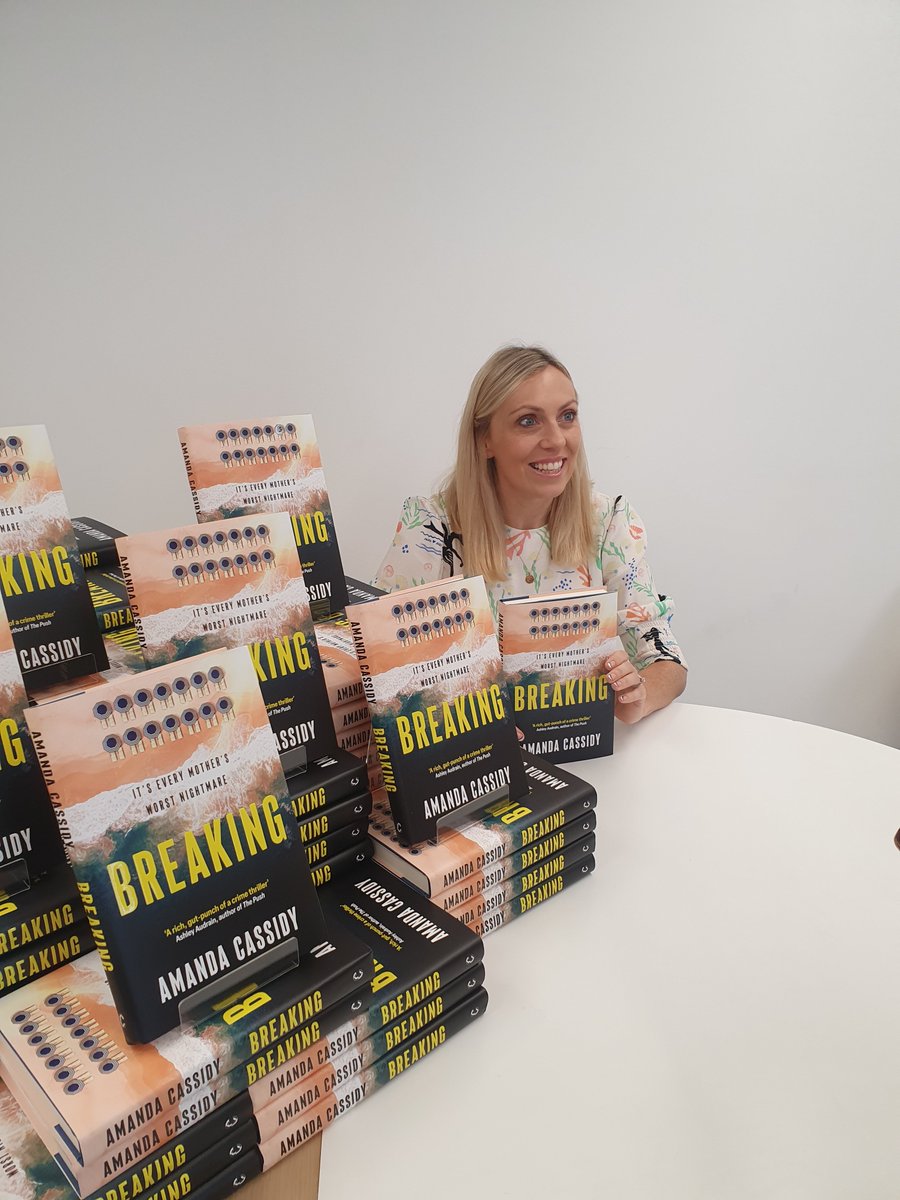
The launch of the highly awaited Breaking had the first floor of Hodges Figgis buzzing with anticipation and dense with an enthusiastic crowd, including The University Times. Amanda Cassidy’s novel has been described as “a compelling debut from a new voice in Irish crime fiction” and its launch reflects the promise that the author herself shows.
Breaking is narrated through the eyes of Irish doctor Mirren Fitzpatrick, on holiday in sunny Florida with her family. The story really begins when Mirren is relaxing and drinking at a beach bar. Her eyes wander from the whereabouts of her child and suddenly the child has vanished. When she reports her child as missing, she becomes entangled in the investigation of her child’s disappearance and is haunted by the guilt and consequences of her actions and the question of her culpability.
Interviewed by Dr. Ciara Kelly at the launch, Cassidy discusses her representation of motherhood, a central theme in the novel. “I enjoy writing about darkness and dark motherhood”, she explains. “The relationship between parent and child is quite fascinating. I wanted to play with the expectations of society.” Being a mother herself, Cassidy drew from her own personal experience when she was writing. She recalled watching her own children on a beach, allowing her mind to wander to any mother’s nightmare. Cassidy hints at a subversion of the expectations of motherhood throughout Breaking and the antagonistic forces that emerge as a result.
Sharing her process of developing her protagonist, Cassidy stresses her attempts at adding complexities to her character past just being a “mother”. Mirren is hinted to be an unsympathetic character, and Cassidy explores this perception of her, simultaneously drawing from and subverting female stereotypes in literature. Cassidy asks, “Is she a bad mother because she left her children unsupervised while she was drinking in a bar? Is she a bad mother because of the superstitions she grew up with? Or is she just bad?”
Having previously worked at Newstalk and Sky News, Cassidy felt her experience in journalism helped her create a compelling story. “I was always a storyteller at heart”, Cassidy jokes. “I was always telling other people stories … when the world was so uncertain around me, I decided to create my own little world.” With the audience fixated on every word that left Cassidy’s mouth, it is understandable how the narrative of Breaking was able to come to life.
The conversation continued as Cassidy explained how she has always been drawn to fictional writing. “I had the book in me, but I just didn’t know where to start.” She notes a piece of advice that stuck with her: “My mentor told me to write a bad book.” In a funny anecdote, Cassidy shared how she wrote the first lines of Breaking, then called “Where Lost Things Go” on the back of one of her son’s copybooks. As if by impulse, the novel’s first chapter came to her, perhaps because of the parallels between her life and Mirren’s. The author’s experience of creating a story that she felt was already hidden within her explains her investment in the world of Breaking and its characters.
Breaking was not the only book that Cassidy had up her sleeve, as she mentioned that her second book was already complete, hinting at a third book being in the works. “I wrote the second book very quickly”, Cassidy explains. “I wanted to be free from the opinions of others and write really subconsciously.” Cassidy shows great potential to be a leading name in the already thriving market of the Irish crime fiction genre.
Amanda Cassidy’s debut novel Breaking is out now.






